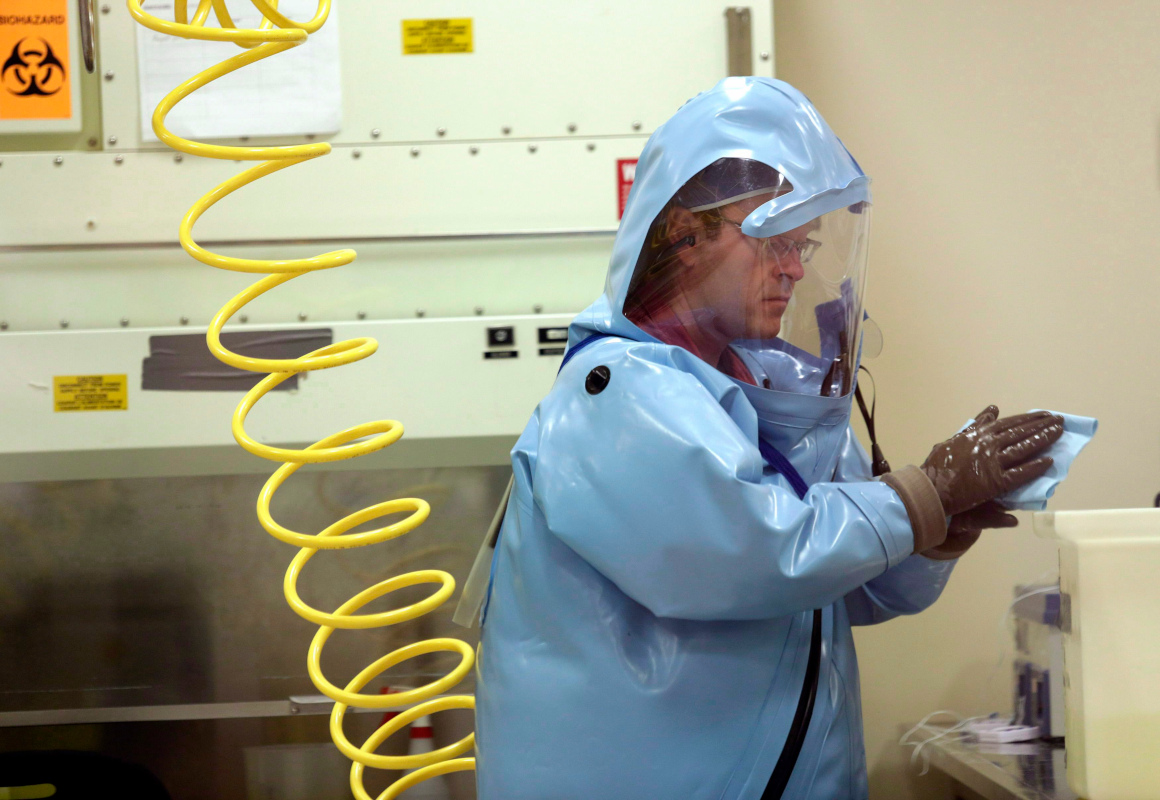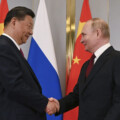After years of the federal government blocking the disclosure of evidence, late last month, intelligence records revealed that two respected microbiology researchers, Xiangguo Qiu and Keding Cheng, were secretly gathering information and virus samples from Winnipeg’s National Microbiology Lab, Canada’s highest security infectious disease lab, and sharing them with Chinese state and military institutions. The couple’s whereabouts are unknown. While the RCMP previously opened a criminal investigation, no charges have been laid.
The Hub’s managing editor Harrison Lowman reached out to Margaret McCuaig-Johnston, board director at the China Strategic Risks Institute, to discuss. McCuaig-Johnston spent nearly 40 years in the public service, including as the executive vice president of the Natural Sciences and Engineering Research Council of Canada (NSERC), and sat on the Canada-China Joint Committee on Science and Technology. She also served as an assistant deputy minister who oversaw three federal government labs and can speak basic Mandarin.

HARRISON LOWMAN: I’ve seen a couple of people now describe this as “the most serious national security breach in Canadian history.” Is that a fair characterization or an exaggeration?
MARGARET MCCUAIG-JOHNSTON: It’s really horrific. I would say it’s one of the most serious national security breaches in Canadian history. Other national security breaches, we probably wouldn’t hear about, right? Because that would have been kept quiet. And the government tried to keep this one quiet. And has been seen to have been using a fig leaf of national security to cover what the opposition parties are calling the embarrassment of the department.
HARRISON LOWMAN: What were some of the more egregious actions of the two scientists?
MARGARET MCCUAIG-JOHNSTON: In one case, material came from China to Canada to the Winnipeg lab, labeled “kitchen utensils” and it was actually dead mouse proteins. Without the knowledge of senior people in the lab, they were also sending [deadly] Ebola virus and Henipah virus via an Air Canada flight to the Wuhan Institute of Virology. The Winnipeg lab had never sent anything like that to China before. So, this was not normal business.
They were also allowing Chinese military People’s Liberation Army (PLA) scientists to come into the Winnipeg lab unescorted. They were also allowing Chinese students to come in. Both were allowed to take materials out. So they were carrying things back to China with them.
One of the things that disturbs me about what happened here is you can see in universities that people who have arrived from China in the last eight or 10 years, they’ve been inculcated with [Chinese President] Xi Jinping thought. And their allegiance is still to the “motherland,” even though they enjoy all the rights and privileges of living in Canada.
But Dr. Qiu and her husband had been here since the 90s. So at least 25 years. It’s surprising to see that they so readily fell for the line of “help the motherland.” That’s always what China does. The fact that they were able to get to people who were really long-time Canadians, that’s disturbing.
HARRISON LOWMAN: Is it fair to say they were recruited as quote-unquote “spies”? Is that the right terminology here?
MARGARET MCCUAIG-JOHNSTON: They would certainly not think of themselves as spies. I’m not sure I would call them spies because our system in our lab essentially gave them what they got. It’s our lax system. We weren’t prepared for this.
HARRISON LOWMAN: How were they not charged and detained immediately upon being questioned?
MARGARET MCCUAIG-JOHNSTON: Well I think that’s why they haven’t come back to Canada. They went to China. And the reporting is that no one knows where they are now. I saw something where they were in northeast China, mentoring other scientists at a provincial lab.
HARRISON LOWMAN: Where does this lab infiltration fit within China’s larger espionage playbook?
MARGARET MCCUAIG-JOHNSTON: It’s an important lesson, I think, for government labs, in general. China was trying some new things in this case. Trying to get us to share intellectual property and materials. So they’ve gone beyond here, what they normally would do. Normally they take this approach in university labs. University professors have had lots of briefings now on the risks of partnering, for example, with the Chinese military, and just what to watch for, and how to protect their intellectual property.
Departmental labs weren’t seen to be as susceptible because they were within the government of Canada. Who would think the Chinese government would try to get right into the government of Canada?
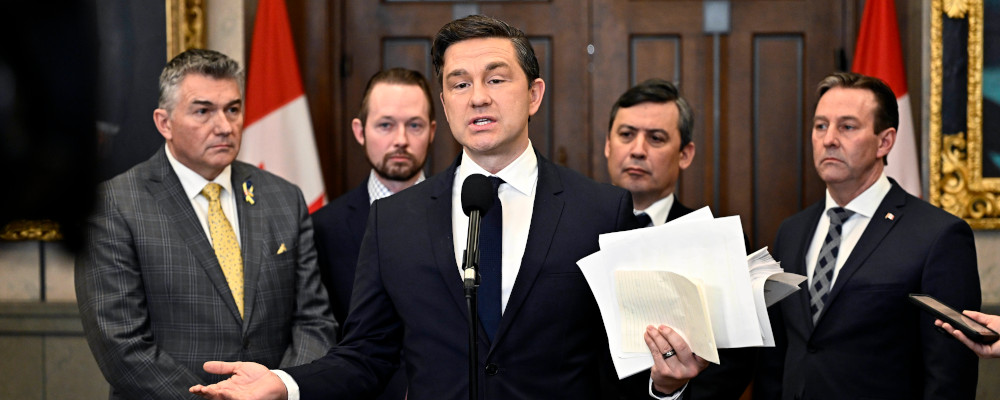
HARRISON LOWMAN: Part of the Winnipeg lab studied the world’s most lethal microbes, including ones that could be used for biological warfare. What did you make of the fact they had access to that?
MARGARET MCCUAIG-JOHNSTON: This is something I’ve been briefing the Canadian government on for many years. When I left the government in 2012, I decided to do some academic work at the University of Ottawa on China’s education system. I started seeing this focus on the integration of military and civilian technology development; where Chinese military scientists would work hand in hand with civilian scientists to advance PLA military objectives. And those military objectives now are using very sensitive technologies like photonics [the physical science of light waves], which Canada is very strong in, and AI.
But what is unique about China is that they’re also using brain research and other medical research to advance a tactic of military engagement called “winning without fighting.” And if you can imagine being able to weaponize the Ebola virus, so that so that they can say to Taiwan, “We now have Ebola as a weapon. And we’re going to set it loose in Taipei unless you shut down all of your defences and allow Chinese mainland military PLA into Taiwan.” Well, now they have Ebola from Canada. You can thank Canada for that if that happens.
[Editor’s note: Minister of Health Mark Holland insists that at “no time did national secrets or information that threatened the security of Canada leave the lab.”]
HARRISON LOWMAN: What would you say to people who say that’s sensationalizing things?
MARGARET MCCUAIG-JOHNSTON: Those people should read PLA documents that show this is exactly what they’re doing. There’s an American researcher, Elsa Kania, who has very close engagement with the PLA military. She’s a member of the U.S. military. And she’s written about how they’re using medical research for winning without fighting.
HARRISON LOWMAN: So, we now have the foreign interference inquiry going on. We have the Liberals and NDP blocking a proposed examination of national security breaches at the lab. So, what do you think should happen next?
MARGARET MCCUAIG-JOHNSTON: If I were still in the government, as part of the group of assistant deputy ministers who manage government labs, I would immediately put on a review. I wouldn’t wait for ministers to ask me to do it. I would do a review across government labs, of their collaborations with China and of their protocols for intellectual property protection, and for the transfer of materials. That’s something that the bureaucracy can and should do.
I’d be surprised if it hasn’t started already.
One of the things I’ve recommended is that this entire lab, not just the section that these scientists were working in—the highly sensitive disease materials—but the entire lab should have zero collaboration with China for the next 10 years.
The government went to great lengths to cover this up. That’s very true. But I don’t see the initial fault of this as being with the politicians. This is on the bureaucracy and its lack of rigour in its own procedures and checks and double checks.
…I promoted a lot of collaboration with China over the years. In the past. As we [Canada] were helping them develop their capacity. They came from zero after the Cultural Revolution. Their universities had been closed for almost 10 years. They’ve really advanced. But they’ve advanced on the shoulders of Canadian scientists.
We’ve done a lot to help them, they know that. But now, with the very aggressive strategies and tactics that Xi Jinping and the people around him are using to acquire technology abroad, we have to be much more vigilant about our own systems, to protect our own things. In our business relations, we have to be tougher negotiators. In our science relations, we have to be much more astute so as to not give away all our IP for nothing.
This interview has been edited and condensed.
Recommended for You

David Mulroney: Foreign Minister Joly, Xi Jinping’s China doesn’t do ‘dialogue’

J.L. Granatstein: Trudeau’s submarine charade
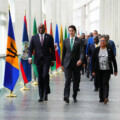
Amal Attar-Guzman: Canada’s global leadership is waning. Why not expand our influence closer to home?
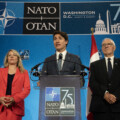
Richard Shimooka: Sorry, NATO, but Justin Trudeau will never take defence seriously. We need a new government for that

